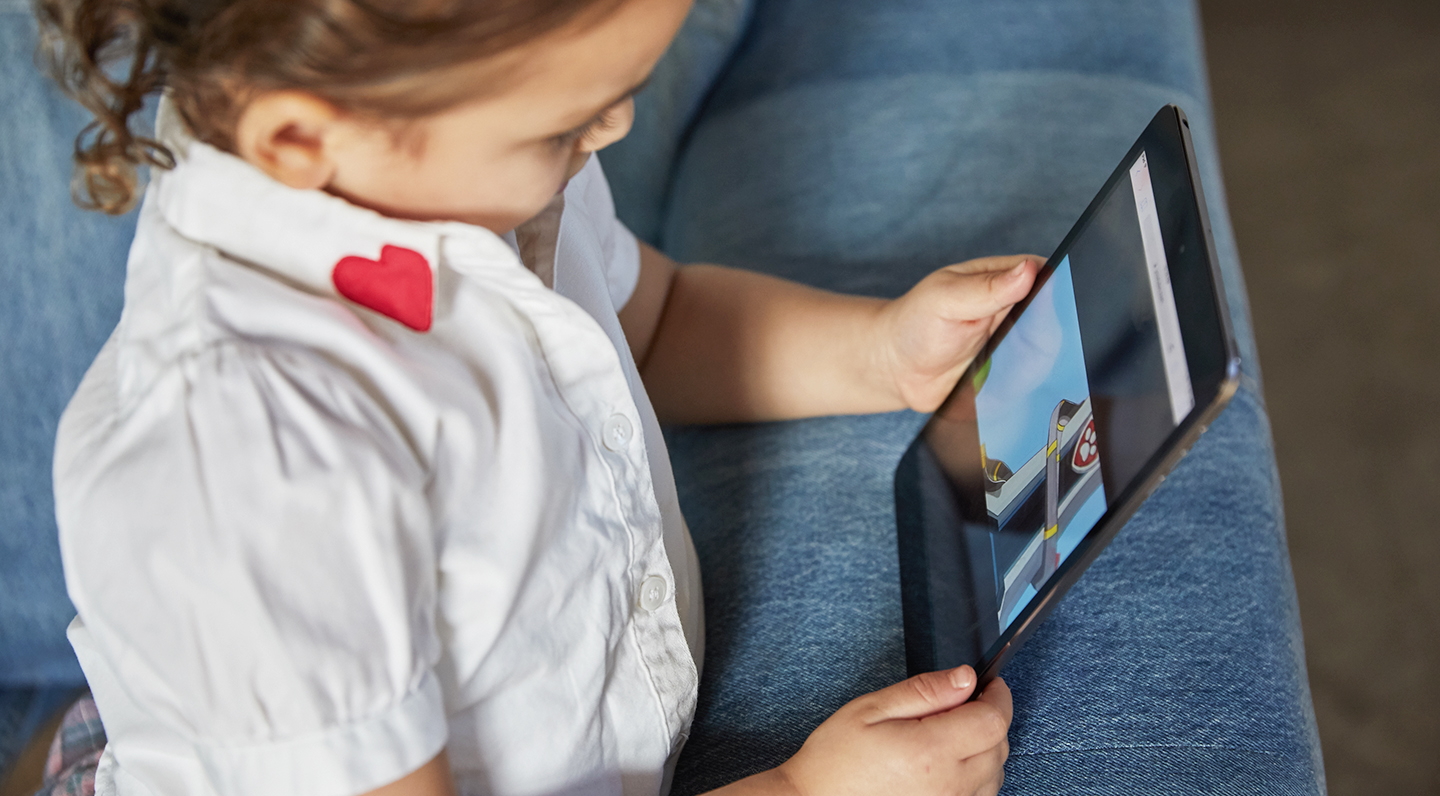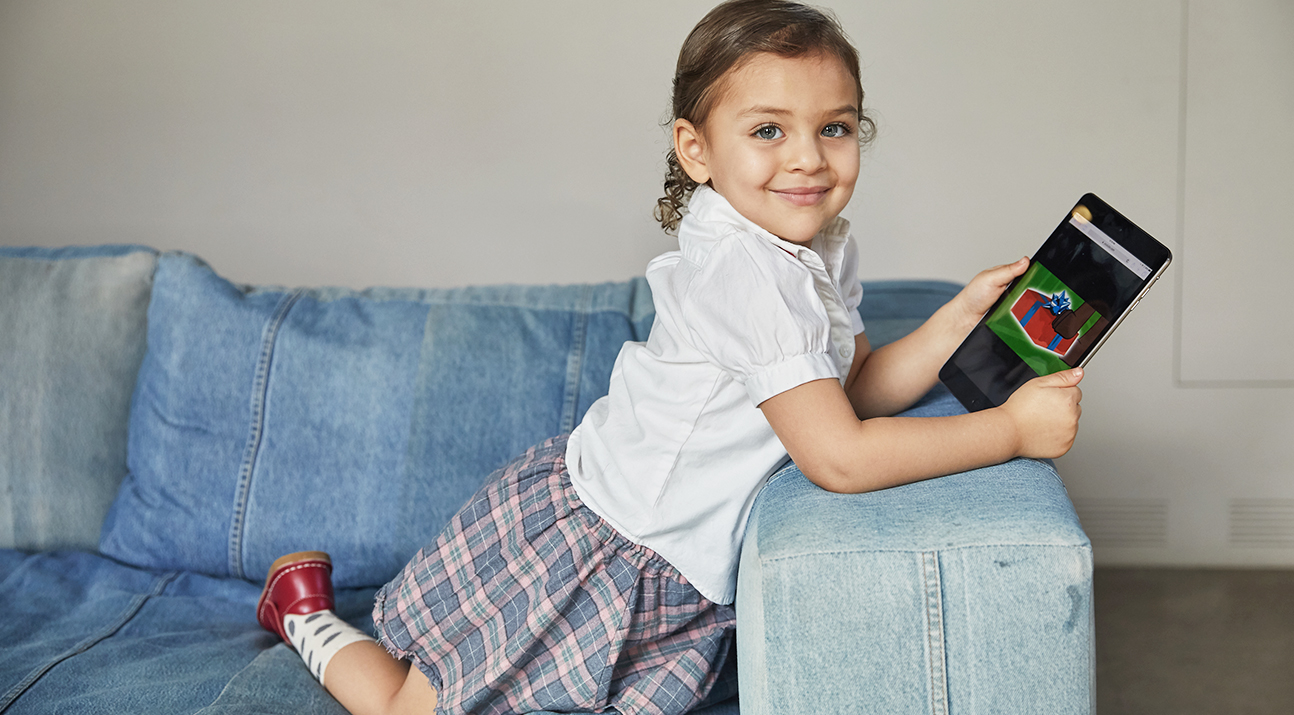Screen Time & Our Children, Part One: What Research Says
Denise Vasi
I remember back in 2014, sitting with my girlfriends talking about children and iPhones. At the time I was secretly a few weeks pregnant with Lennox Mae, and although there were many parenting decisions I had not made yet, the one thing I did know was that we were going to be a “no screen time” family. My girlfriends (who already had children), looked up at me confused… “but why?”
“Phones are the devil.” I jokingly replied.
“But you guys work in movies and television, how is that going to happen?” said one friend.
“Oh you’ll see, and you’ll change your mind once you have kids!” said the other.
But I already saw it. I could see how screen time affected their children. Whether they were “learning” games or video games, I could see that their children didn’t do very well sitting at a table during meals, unless they were hunched over an iPad. They never seemed to make direct eye contact when spoken to, and all four children seemed to have large emotional outbursts when they were forbidden to use a smart device or if heaven forbid the tablet “died.”
I want to be clear. I was in no way judging my girlfriends. They are exceptional mothers — women I have learned a lot from over our decades of friendship. Here I was just a few weeks pregnant with child number one, and they were both mothers of multiples, 6-8 years into motherhood, but honestly, they didn’t know much about the possible effects of smart devices. There was little to no research to back either side of the argument, and at the time when their children were born, few were even questioning if there were any effects at all. Their children are what I would consider the “smart device guinea pig generation.”
Not to say I knew very much either. I just knew I wanted my future child to develop a vast imagination. I wanted him or her to love playing pretend, to enjoy dress-up and to believe in fantasy worlds they created while rummaging through the backyard. I wondered if smart devices would rob my child of experiencing those crucial developmental skills.
Time went on, I had my daughter, I did more research, and I observed closely other children’s behavior. What I personally felt in my heart was the longer we could keep screen time away from our daughter, the better.
This discussion has been one that has come up on social media a lot. Many mothers have reached out to ask me why or why not? How do we do it? And when is the right time? These are questions each parent needs to answer for themselves because every family’s dynamic is so different. Please know that I fully respect all of our different parenting choices and that I can only share what has worked for my family and the reason we have chosen to do things the way we have.
Because the topic is a sensitive one and because there’s a lot to be said, I’ve decided to break down the overall discussion into a series. To kick things off, I thought it would be most beneficial to start by getting into what research tells us.
Below you’ll find “What Research Says,” Part One of this series. In Part Two, I’ll be discussing how we’ve done things over the last four years with our daughter, and in Part Three I’ll get into what happened when we recently did allow our daughter to indulge in screen time. So be on the lookout for my followup posts!

What Research Says
Several studies show significant differences between children who engage in screen time and those who do not. The National Institute of Health told 60 Minutes in December of last year, about their groundbreaking $300 million study. The NIH will be following 11,000 children at 21 different testing sites across the country so that they can better understand how screen time is affecting children’s brain and emotional health. This study won’t be complete for a decade but what they can already tell us is that children who are allowed to participate in screen time are experiencing “premature thinning of the cortex, the outer layer of the brain that processes information from the all the five senses.” Additionally, the NIH study can already conclude that kids who are exposed to more than two hours a day of screen time have lower scores on both language and thinking tests.
When it comes to cell phone radiation and health, children are at a much higher risk of bodily damage. In an older study back in 2010, the NIH released information finding a “causal” link between exposure from wireless cell phone signals and cancer in rats. In December 2017, the California Department of Public Health (CDPH) released guidelines warning users about the link between radiofrequency energy from cell phones and cancer. Guidelines suggested keeping wireless devices away from the body whenever possible. Many studies indicate that men and boys should not keep devices in their front pockets because of the proximity of radio frequency and their testis. Women and girls are advised not to keep devices near their breasts, and nursing mothers advised not to use wireless devices while breastfeeding due to RF energy from cell phones.

“Each additional 30 minutes of hand-held screen time was linked to a 49 percent increased risk in expressive speech delay.” — Catherine Birken
When it comes to toddler’s specifically, many studies advise parents to avoid screen time (outside of video chat) completely for children up to 18 to 24 months old because the first two years of life are so important for overall development. Several studies including research from the Cohen Children’s Medical Center found that babies and toddlers are experiencing language delays. Overexposure to smart devices mean less engagement in conversation with parents and caretakers and fewer interactions with siblings. In turn that leads to speech delays and a low vocabulary count amongst children. According to Catherine Birken, a pediatrician and scientist, “each additional 30 minutes of hand-held screen time was linked to a 49 percent increased risk in expressive speech delay.”
Other significant concerns are the impact screen time has on our children’s learning abilities, emotional behavior and mood. Researchers out of Seattle Children’s Hospital say the idea that children are learning from “educational” apps and programs is a total falsity. Children are not actually transferring the information that they “learn“ from two-dimensional devices such as iPhones and tablets into the real three-dimensional world. Children are actually having a harder time concentrating and learning because the over-stimuli that comes from screen time makes the classroom seem dull and boring. All of which later leads to other academic challenges.
When it comes to emotional intelligence and mood, everyday observations include hyperactivity, attention deficit disorder, struggles with self-control and impatience. Toddlers tend to demonstrate obsessive behavior and have uncontrollable explosive tantrums.
The lack of development and use of social skills as well as childhood obesity have also been linked to screen time use.
It may seem like there are conflicting messages when it comes to children and smart devices/ screen time, but the reality is that there is an overwhelming amount of proof indicating that use is detrimental to our children’s’ health, emotional, social and cognitive development. While understanding it all may be very complex for parents, and while some of the best-funded studies need many more years to finish their research, there is more than enough information out there for us to really reconsider not only our children’s accessibility to tech but also our own.





